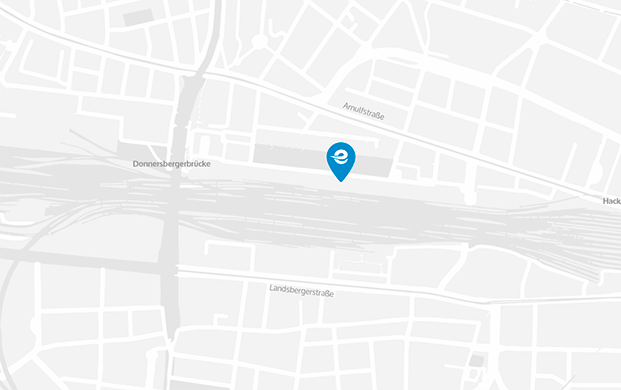What is a Digital Twin?
A digital twin is the digitized image of physical assets such as a production machine. The individual tasks are digitally modeled, recorded, reproduced or simulated by software. Even the 1visualization of key figures, such as a temperature curve or the units produced, is sometimes referred to as a digital twin. Here, the overall picture is not yet displayed, but only individual data measured by the sensors. They form the “life data” of the digital twin.
There are different levels within the virtual image. The final level is a virtual 1-to-1 representation of the whole machine and simulates the individual processes. This, for example, makes it possible to apply a virtual load to a robot arm to check how the manipulator behaves under load. Physical simulations are another part of this: Especially in aircraft construction, flow simulations are carried out to analyze the behavior without having the aircraft physically available.
In this final level, there is also a link with the Enterprise Resource Planning System (ERP), that is, with the resource planning process of a company. Here, supplemental data of the suppliers and the various materials are collected. In aircraft construction, this is already considered standard today. Every single spare part is recorded; thus, the exact source is visible: Who purchased this part when and where, where is it in stock, what quality level does the spare part have and what were the purchasing costs?
Industrial IoT platforms and IIoT software modules such as shopfoor.io often make use of digital twins in the form of AAS (Asset Administration Shell) to map assets, their hierarchy levels and status data in a user-friendly and useful way.
How Companies Benefit from Digital Twins
Why should manufacturing companies invest in a digital twin in order to enter the IIoT quickly? From the beginning of the use of a digital twin, results can be achieved without a great deal of hardware effort, driving process optimization forward. Because in the initial step it is not yet necessary to link data together. After all, it’s all about getting to know your machinery better. By the end of the project, e.g. all machine KPIs are displayed, and all documentation and work instructions are recorded. This collected knowledge is pooled in the digital twin.
Extracting individual data and the process of creating a visual image improves the overall understanding of process operation. As a result, different products and processes within the organization benefit from sustainable improvement. Thanks to the machine data visualization, new fields of business can be explored which have a positive effect on business success.
The administration shell for the management of your assets
The Asset Administration Shell (AAS) is an important component of the Industry 4.0 as it enables the communication of various digital twins of machines and plants in the first place. As of yet, there has been no standardised file format in which the various machine parameters, such as power consumption, throughput, etc., are made available. With the help of the administration shell, however, machine builders offer their customers the possibility to connect plants from a wide range of manufacturers as well as simplifying their data integration and analysis: The Asset Administration Shell (AAS) uses standardised description formats! Machine operators can thus integrate new assets into their existing production lines and monitor and optimise their processes as usual.
An administration shell thus forms an interface that collects all the data and information of an asset, such as technical data, condition monitoring data and operating data. Industrial IoT platforms and IIoT software modules such as shopfoor.io often use digital twins in the form of an administration shell to map said assets, their hierarchy levels and status data in a user-friendly and useful way. All information necessary for the engineering of a plant is provided in the management shell. Machine operators can thus analyse the performance of their assets and optimise it, for example, through targeted maintenance work.
The content of the management shell is divided into sub-models. Each model covers a use case by grouping different characteristics. A feature is further assigned a value, value type and a SemanticID in order to be able to clearly define the properties of a feature. Some standardised sub-models already exist such as those listed at IDTA. However, it is also possible to create your own new sub-models individually tailored to your own use cases. How an administration shell can be defined in practice by submodels is described in a publication by “Plattform Industrie 4.0”.
To create your own management shell with customised sub-models, you can use our AAS module, which is part of our shopfloor.io software kit.
The Bigger the Plant the Better
A digital twin is profitable when complex systems are involved. As a rule, the larger the lot produced, the more relevant a digital twin will become. This is especially true when all product and process performance indicators have not been recorded so far.
Besides, a digital twin improves efficiency, which plays a pivotal role in large production volumes. With the help of the digital twin and the data collected here, company staff can better understand their plant and machinery, develop more streamlined processes and identify problems earlier. This results in time savings and reduced material consumption in production.
Additional Optimization with shopfloor.io
Shopfloor.io is an exciting option for anyone who cares about the “Digital Twins”. It is a digital twin application that connects machines and visualizes essential performance indicators, tasks, machine data and errors as well as other relevant events in a cloud application. The aim is to enhance products through technical innovations in Industry 4.0, such as Machine Learning. In addition, the technical complexity for the end user is reduced, and a successful adaptation through self-explanatory applications with a focus on added value is made possible.

shopfloor.io’s architecture is designed to work with high data volumes in a machinery environment and can be integrated into cloud services like AWS as well as on-premise solutions. It enables quick entry into Industrial IoT without being dependent on a specific cloud provider. Dataface’s modular approach offers complete flexibility to extend or replace components and services with your implementations at any time.
elunic - Your Professional Support for Digital Twins
Wherever digital twins are concerned, the elunic team is at your side offering experience and in-depth know-how. We are your IIoT partner on eye level. Our experts will support you in developing innovative and sustainable user experiences. In this showcase, read one of our success stories about “Digital Twins”.
For 15 years, elunic has been developing cloud-based software solutions for small and medium-sized enterprises and industrial corporations. We meet the growing requirements of Industry 4.0 and the Internet of Things with more than 30 highly qualified and specialized experts in areas such as Big Data, Predictive Maintenance, IT Security and UX Development.
Learn more about elunic and our services at www.elunic.com.
Your Benefits.
Industrial IoT Services from elunic
Request now.

































































